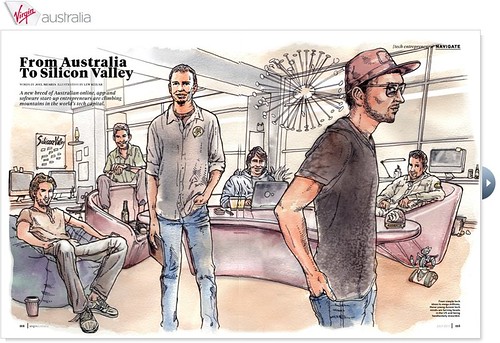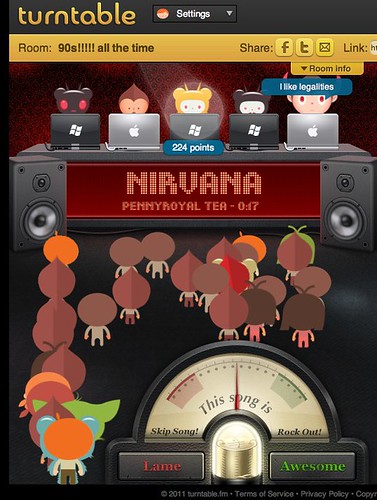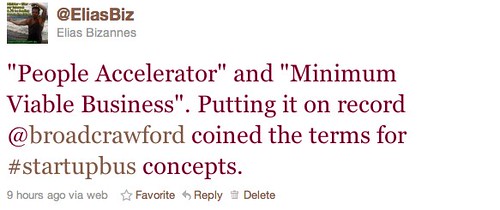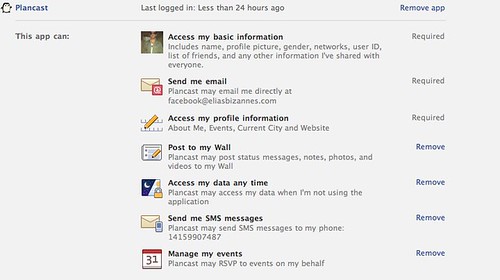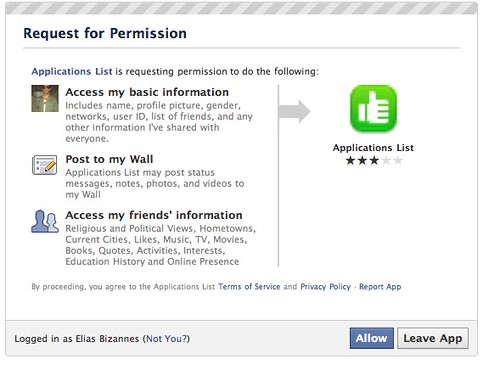When a newspaper a year ago interviewed me, I matter-of-factly talk about an “Aussie Mafia” in Silicon Valley and how we regularly talk to our friends in Australia. More recently The Next Web rather cheekily said I regarded myself as part of an “Aussie mafia” in the commentary to the video interview. The interview caused a bit of a stir with emails and additional blog posts about the project.
But it wasn’t until this last week when an article surfaced from the July 2011 Virgin Australia inflight magazine “Voyeur” that some noise really affected me. Back in April 2011, the journalist asked for my help on people to speak to and to give him insight in tech which he readily admitted was not his normal beat; but as a consequence of that discussion, I think the article made some presumptions which make it look like I created the Australian tech community and this “Aussie Mafia”.
Well, not quite. Given both the drinks mentioned in that article, the brand “Silicon Beach” and the “Aussie Mafia” are mentioned, it was suggested by someone I clear up the real history. So here it goes.
“Silicon Beach”
The Australian newspaper media popularised the term “Silicon Beach” from a front page article in January 2007 to describe Sydney in Australia that had a growing tech scene. Six month’s later, I wrote a post saying we should call all of Australia “Silicon Beach” as “we’re one island continent anyway”. A year later, I registered the domain name siliconbeachaustralia.org (and later, negotiated siliconbeach.org) with a placeholder website and launched a mailing list which set the brand on fire. I then went onto build the brand further by launching a podcast series with Bronwen Clune, writing a letter to the Australian Senate on behalf the community that had formed around the mailing list (and a subsequent proposal on request of some Australian senators that formally had them refer to the industry as “Silicon Beach”).
Now those infamous drinks.
Back in May 2008 along with Mick Liubinskas and Lachlan Hardy we made a decision by the Shelbourne Hotel‘s Pool table to do a weekly drinks that was ‘same time same place’ to avoid confusion — the goal was this consistency would build community in Sydney’s fragmented technology industry. That afternoon Bart Jellema, Kim Chen, Mike Cannon-Brookes and others in attendance agreed — with Bart and Kim being instrumental in making them what its become (they would often be the only people there!). The drinks initially were called “FITSBAD” based off a public Twitter discussion Mick and I subsequently had, which stood for “Friday Information Technology Silicon Beach Drinks” and separately over alcohol at one of the drinks with Bart we called it “Official Friday” because, well, it gave it more status (Bart pushed passionately, I kept drinking). Months later, I convened Mick and Bart and asked them to call it one or the other as they started competing with each other, and so “Official Friday” it became. But then, it slowly turned into “Silicon Beach drinks” (no doubt influenced by Mick and Bart who are the biggest supporters of the brand, but also because Melbourne hosted a monthly drinks under that brand). These drinks further entrenched the brand I didn’t invent but made and now unfairly get credit for doing everything.
Silicon Beach is a brand that I built but so has everyone else in Australia. Just because I first popularised the term though doesn’t mean I did anything special.
“Aussie Mafia”
I first heard about this term from drunk Facebook posts by my Aussie friends in Silicon Valley when I lived in Sydney (people like Martin Wells, Chris Saad, Mike Cannon-Brookes). It would later turn out my future room mate Marty Wells actually invented the brand and replicated in Silicon Valley what he did in Sydney, which was organise the tech entrepreneurs socially. Which is ironic, because the “Silicon Beach” drinks filled the void when Marty left Australia with the events he ran like the semi-exclusive Dinner2.0 (where I met Marty) and Stirr. Dean McEvoy (an Aussie that formally lived in Silicon Valley and that went on to do something amazing in Australia) even registered aussiemafia.com. Kind of funny, as it was a jovial term to describe Aussie entrepreneurs in Silicon Valley. No one took it seriously, until other people did.
In the months I lived with Marty between September 2009 and January 2010 (I moved to America in August 2009), we called our wifi network “Aussie Mafia HQ” and I tapped into a semi-regular catchup Marty would have with his friends Alisdair Faulkner, Stephen Weir (a Kiwi), Chris Saad and Bardia Housman. It actually started when Stephen and his girlfriend would eat once a week at a venue, and invited other couples like Alisdair, and sometimes Bardia (who was in the near end of an exhaustive year long process in selling his company to Adobe and starting to come up for air again) and their partners hanging out — but when the talk of the boys constantly turned to business the girls decided to let them do their own thing. I arrived in America around the time these drinks became a boys catchup driven by Steve, Marty and Al.
Over the next few months, it became a routine and then a ritual. And when visiting Australian’s wanted to meet us individually (as individually everyone in the group had a profile), we’d often invite them, which in turn built this brand as the “Aussie Mafia” catchup. People would get upset they weren’t invited as it was perceived as some industry event. I’ve actually had several confrontations with women on why they weren’t invited! It got to the point where it felt like work and not friends catching up anymore. This practically killed it, as some personalities just ruined the discussions and defeated the purpose of why us time-limited friends would catch up.
And then?
There is no real “Aussie Mafia”: we pay our taxes, we have work visa’s, and we don’t kill anyone that doesn’t pay us protection racket. And I am not the reason why Australia has a tech community — I simply innovated because I identified early on we needed a brand to rally around in Australia, which turned out to be so successful that these journalists credited me for creating the industry!
But there is something in this extended group that’s special, that American entrepreneur friends of ours profess jealousy of. Both Bardia and Stephen bought the building that I gave a tour of in The Next Web — these two drinking buddies are now business partners. And there are more business arrangements to be announced in the coming months that have been developed along with discussions against trips to Mexico, Vegas and Miami.
There are a bunch of other Aussies and Kiwi’s I haven’t mentioned in this post and they know who they are. It’s an interesting time though because these social friendships (I’ve had some of the funnest nights in my life with the people in the above sketched image) are now becoming commercial relationships. A story of success will come out of this and I guess you could say we’re rewriting our history in this city.
UPDATE: 14 July 2011: Delighted to find out today that Kim Chen was a secret influence behind the Melbourne Silicon Beach drinks. There had been two previous attempts at getting Melbourne to have regular drinks, but it was Kim’s discussion with Roy Hui, Kate Kendall and Stuart Richardson that led to this being a huge success.
